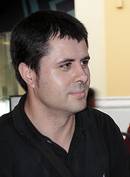Evaluation of Sanitary Technologies. Science for the promotion of sanitary decisions

Gutiérrez Ibarluzea, Iñaki Dk.
Osteba, Osasun Teknologien Ebaluaziorako Zerbitzua. Osasun Plangintza eta Antolamenduko Zuzendaritza
Osasun eta Kontsumo Saila. Eusko Jaurlaritza

The definition of definitions should include the concept of healthcare technology: heavy, sophisticated and complex equipment and techniques; medicines, devices and medical-surgical procedures used in health services; and health care systems, promoters and organizers.
The concept of FERE is born in the 70's. In the face of the oil crisis, some countries indicated that they could not pay the costs of some sanitary technologies, especially when the efficiency of these technologies was in doubt.
Since the 1970s, and with the aim of improving the efficiency and efficiency of health services, service providers and payers have become increasingly interested in the fact that decisions on services are based on evidence of scientific evidence, as a result of this. This means obtaining information about technologies and procedures, their efficiency and cost-effectiveness. In this context, at present we find two opposite elements in the developed countries: on the one hand, the growing supply of more sophisticated and promising sanitary technologies, but on the other hand, the economic authorities have advised to reduce the costs of health services, since the system resources are limited.
Thus, health policies and health professionals have analyzed this situation and have drawn three main conclusions. First of all, there is no direct relationship between the costs of health services in a country and the health and quality of life of its population (in Greece, for example, the costs of health services are one of the lowest in the European Union, however, the life expectancy of its population is similar to that of Germany or France). As is well known, investments in the health system and sanitary technologies are no more than two of the determinants of health, and in most cases not the most important.
Secondly, clinical practice is variable. This phenomenon was published for the first time in the 1930s and since the 70s it has been analyzed carefully. Thus, on the one hand, differences or variations have been detected between countries, but not technical, but related to the nature of health professionals, the form of clinical practice or organizational systems. Variability is due to the lack of capacity of professionals, the organization of health systems, the coverage of technologies, etc. However, one of the main causes of variability is the personal criteria of physicians and other professionals in the management of patients. Recommendations based on quality testing can help reduce or harmonize the absurdity of this variability.
Finally, some health practices have a real effect on the population. According to some criteria, the cost associated with negative practices represents 20% of total health expenditure. In fact, the inefficiency and inefficiency of classical clinical practices has notably led to biomedical research. Thus, more and more high-quality research has been published.
Therefore, on the one hand, the notable increase in health costs has not improved or has not improved the expected health level, on the other hand, the degree of variability is very high and, finally, there are doubts about the impact on the health of some medical procedures. All this indicates a lack of knowledge about health systems and some areas of clinical practice. This lack makes it difficult to make decisions about resources and direct uses.
Evaluation of Sanitary Technologies in the Autonomous Community of the Basque Country
Seventeen years ago, in autumn 1992, the Department of Health decided to launch the unit of evaluation of sanitary technologies, Osteba. Currently and based on its mission, Osteba provides information and recommendations for decision-making and proposes scenarios based on these recommendations for application in the health system of the Autonomous Community of the Basque Country (CAPV). As examples of the activity of Osteba we can cite the plan of prevention of breast cancer, the plan of prevention of colorectal cancer, the plan of detection and criteria of Down syndrome, the plan of early detection of child deafness, the guide of clinical practice of diabetes mellitus, etc. Decision-making is carried out from the health system of the CAPV, the reports of Osteba and other information. In recent times, it has been asked, among other issues, whether it is necessary to expand enough to enter the plan of prevention of breast cancer, what is the most appropriate technique to detect colorectal cancer, what is the most appropriate strategy to detect Down syndrome, etc.
To date, however, OTE agencies or units have appeared quite reactive: their mission was to provide information when a healthcare technology was to be incorporated into the system. At present, the main challenge is not to provide timely and local information, but to be more proactive, that is, to identify health needs and identify technologies to cover them or help develop innovations. Therefore, with this goal, agencies are working together with other organizations and participants such as users, bioscience companies and health professionals.
Thanks to Agurtzane Urrutia for her collaboration in writing the article.






